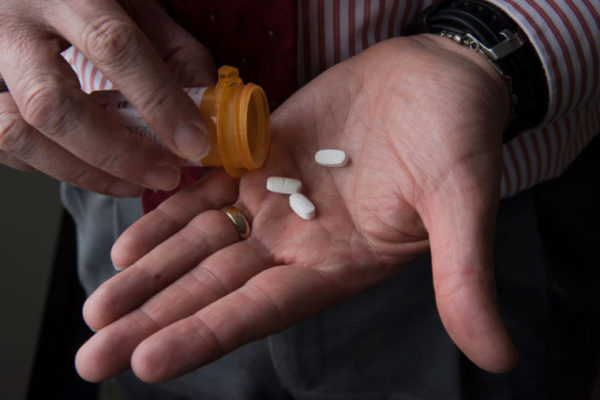Similar to treatment resistant depression, there is a subpopulation of those addicted to opioids who do not respond to standard opioid use disorder (OUD) treatments. In a new paper, an addiction expert at the Brown School at Washington University in St. Louis suggests a new category for these types of patients: treatment resistant opioid use disorder (TROUD).

“The field has suggested that if a treatment does not work, it is either the patient’s fault, they have not hit bottom, or simply we need to try the same treatment again,” said David Patterson Silver Wolf, associate professor and an expert on substance use disorder treatment. “This paper challenges the addiction research and treatment providers to change focus from individuals being resistant to the unique conditions associated with this brain disorder as being resistant to treatment as usual.”
Patterson Silver Wolf is co-author of “Treatment Resistant Opioid Use Disorder (TROUD): Definition, Rationale, and Recommendations,” recently published online in the Journal of the Neurological Sciences. His co-author is Mark Gold, adjunct professor in the Department of Psychiatry at Washington University School of Medicine in St. Louis.
Patterson Silver Wolf was reading about treatment resistant depression and thought some of the same mechanisms might apply to opioid addiction.
“I found out that it is unethical to recommend the same depression treatment that has already failed,” Patterson Silver Wolf said. “In substance use disorder treatment, this is exactly what we do, over and over again.
“In this article, we discovered that patients being admitted to outpatient treatment and diagnosed with an opioid use disorder had upwards of 30 past treatment attempts. And the unfortunate fact was that they would most likely be receiving the same treatment as before. In substance use disorder treatment, the treatment does not change, we expect the individual to change.”
Patterson Silver Wolf defines TROUD in stages. “For example, Stage 1 TROUD would be failure of three standard OUD medications or behavioral treatments, either in combination or succession, with Stage 2 TROUD being five or more failures,” he said.
More research needs to be done on how widespread treatment resistance may be.
“We are analyzing data with a sample size of over 2 million admissions into substance use disorder treatment around the U.S.,” he said. “Of those 607,000 who were diagnosed with an opioid use disorder, about 120,000 reported five or more past treatment attempts. That represents about 20% who could be considered suffering from TROUD.”
“There is a robust historical literature showing the efficacy of psychedelic drugs as addiction treatment. Regardless, if we join the renaissance or not, we must expand the treatment options for those suffering from TROUD.”
David Patterson Silver Wolf
Can TROUD be treated?
“This is the million-dollar question,” Patterson Silver Wolf said. “Unfortunately, our substance use disorder treatment industry offers very limited options for those who might be diagnosed as suffering with TROUD. It consists of about three medications, two of which are themselves opioids, and treatment as usual.
“Following the work of treatment resistant depression and the renaissance of testing psychedelic drugs as treatment options, we in the substance use disorder treatment and research fields have to be open to trying new, or in psychedelic literature, older ways of helping this suffering population.
“There is a robust historical literature showing the efficacy of psychedelic drugs as addiction treatment. Regardless, if we join the renaissance or not, we must expand the treatment options for those suffering from TROUD,” Patterson Silver Wolf said.
The opioid overdose epidemic kills about 130 people a day in the United States and it is estimated that there are about 2.1 million people who suffer from an opioid use disorder.




Comments and respectful dialogue are encouraged, but content will be moderated. Please, no personal attacks, obscenity or profanity, selling of commercial products, or endorsements of political candidates or positions. We reserve the right to remove any inappropriate comments. We also cannot address individual medical concerns or provide medical advice in this forum.